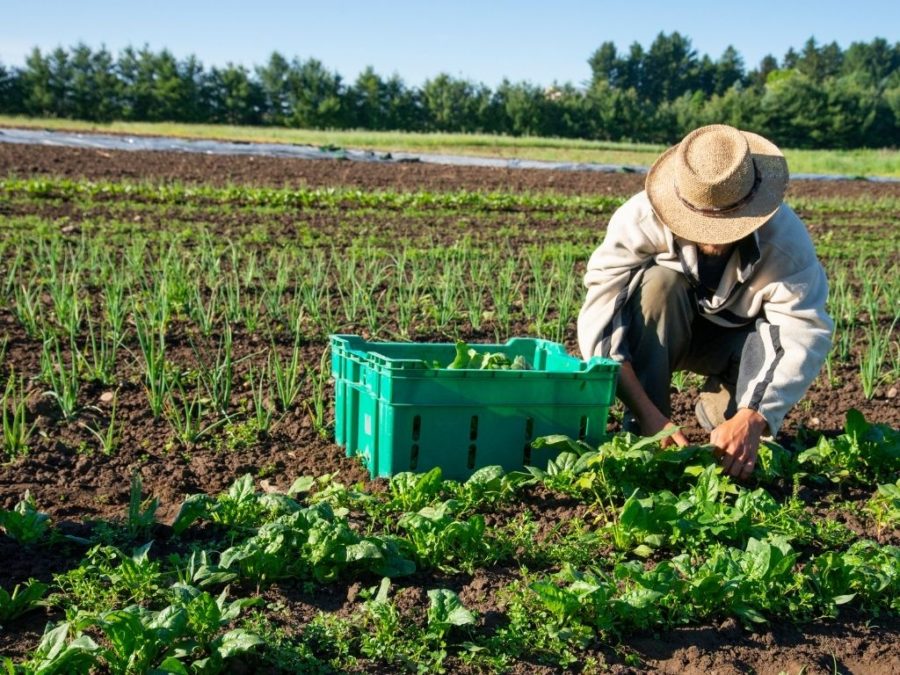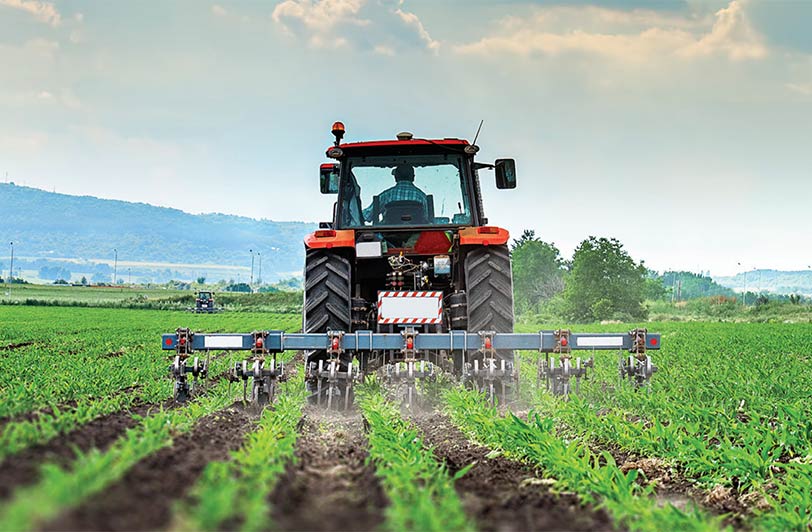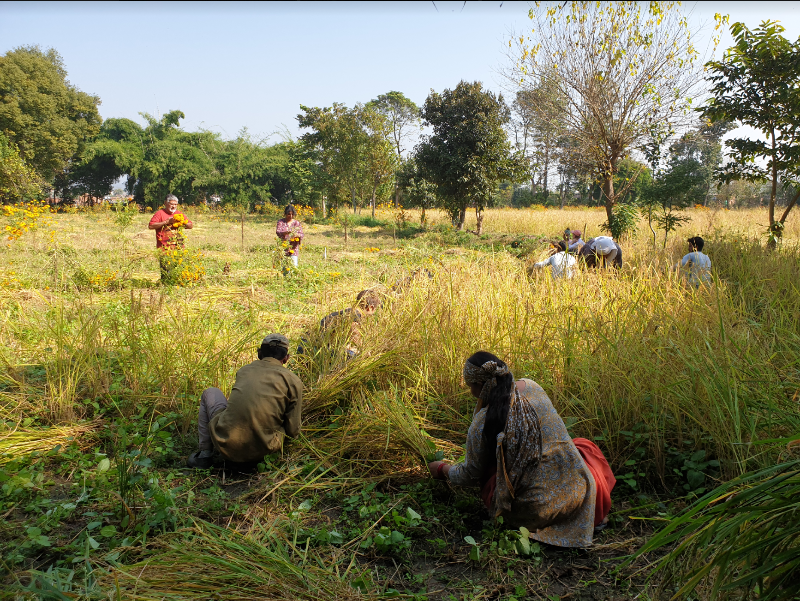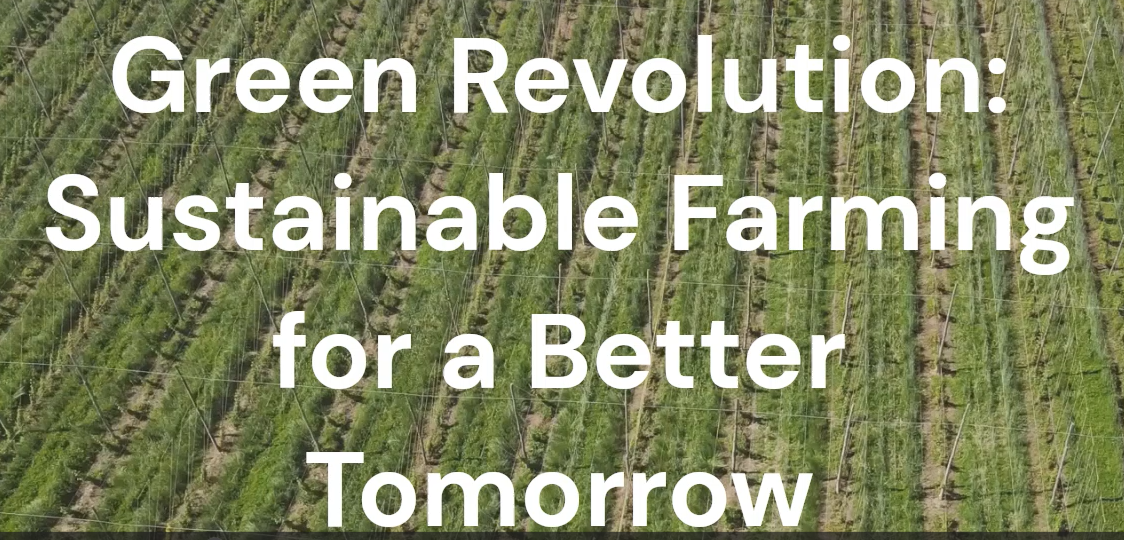The Green Revolution: Sustainable Farming for a Better Tomorrow
In an era marked by increasing environmental concerns and a growing global population, sustainable farming practices have emerged as essential strategies to ensure long-term agricultural viability. These practices focus on maintaining the health of the environment, ensuring economic profitability, and promoting social and economic equity. This holistic approach to farming not only addresses immediate agricultural needs but also ensures the availability of resources for future generations.
Methods for Sustainable Agriculture and Their Benefits
1. Crop Rotation and Diversification:
Description: Crop rotation involves growing different types of crops in the same area in sequenced seasons. Diversification means planting a variety of crops rather than monocultures.
Benefits: These practices help in reducing pest and disease cycles, improving soil fertility, and increasing resilience against adverse weather conditions. Diverse cropping systems enhance biodiversity, leading to a more balanced ecosystem.
2. Organic Farming:

Description: Organic farming eschews synthetic chemicals and fertilizers in favor of natural alternatives.
Benefits: This reduces chemical runoff and soil degradation, promoting healthier ecosystems. Organic farming also enhances soil structure and nutrient content, leading to more sustainable crop yields over time.
3. Agroforestry:

Description: This practice integrates trees and shrubs into agricultural landscapes.
Benefits: Trees provide shade and wind protection, improve soil health through leaf litter, and enhance biodiversity. Agroforestry systems can also sequester carbon, contributing to climate change mitigation.
4. Conservation Tillage:

Description: Conservation tillage minimizes soil disturbance by reducing the frequency and intensity of plowing.
Benefits: It helps maintain soil structure, reduces erosion, and promotes water retention. This practice can also increase organic matter in the soil, enhancing its fertility and stability.
5. Integrated Pest Management (IPM):
Description: IPM combines biological, physical, and chemical methods to control pests in an economically and ecologically sound manner.
Benefits: This reduces reliance on chemical pesticides, lowering environmental contamination and promoting beneficial insect populations. IPM can lead to healthier crops and higher yields.
6. Water Management:

Description: Efficient irrigation techniques, such as drip irrigation and rainwater harvesting, optimize water use.
Benefits: These methods reduce water waste, prevent soil erosion, and ensure crops receive adequate hydration. Sustainable water management practices are crucial in areas facing water scarcity.
Case Studies of Successful Sustainable Farming Practices
Polyface Farm, Virginia, USA:

Overview: Managed by Joel Salatin, Polyface Farm uses rotational grazing, composting, and polyculture to create a sustainable farming model.
Successes: The farm has achieved high productivity and profitability while maintaining ecological balance. Its methods have reduced the need for chemical inputs and have enhanced soil health.
'Sekem, Egypt:

Overview: Founded by Dr. Ibrahim Abouleish, Sekem integrates biodynamic farming with social and educational projects.
Successes: Sekem has transformed desert land into fertile agricultural fields using composting and crop rotation. The initiative has also empowered local communities through education and healthcare programs, demonstrating a successful blend of sustainable agriculture and social development.
Navdanya, India:

Overview: Established by Dr. Vandana Shiva, Navdanya focuses on seed saving, organic farming, and biodiversity conservation.
Successes: Navdanya has conserved thousands of indigenous seed varieties and trained over half a million farmers in sustainable practices. This has led to increased biodiversity, improved soil health, and enhanced food security for local communities.
Cafédirect, Latin America and Africa:
Overview: Cafédirect partners with smallholder coffee farmers to promote sustainable farming methods.
Successes: The organization has improved livelihoods through fair trade practices and has promoted organic and shade-grown coffee production. These methods have resulted in better quality coffee, increased resilience to climate change, and improved biodiversity in coffee-growing regions.
Sustainable farming practices are not just an option but a necessity for ensuring long-term agricultural viability. By adopting methods such as crop rotation, organic farming, agroforestry, and water management, farmers can achieve productive, profitable, and environmentally friendly agriculture. The success stories from around the world highlight that sustainable agriculture is not only feasible but also beneficial for farmers, communities, and the planet.
References
Food and Agriculture Organization of the United Nations (FAO). "Sustainable Agriculture." FAO.org. Link
Polyface Farm. "Our Farm." PolyfaceFarms.com. Link
Sekem. "Our Story." Sekem.com. Link
Navdanya. "Our Mission." Navdanya.org. Link
Cafédirect. "Our Impact." Cafedirect.co.uk. Link
